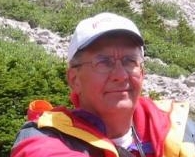Sunday December 10, 2006 8:00 am Lethbridge Sunrise 8:17 Sunset 16:31 Hours of daylight: 8:14
A. Morning Musings
8:00 am It is -5 C at the moment with a high of +6 C forecast.
|
|
From rear window |
South patio |
Both images taken at 2:10 PM |
B. Plan
| Immediate |
|
|
| Health |
Walk & exercise |
1 hr |
| History |
Make notes for "Citizens" |
1 hr |
| |
Read Watson "Ideas" |
1 hr |
| Philosophy |
Read & make notes for "Breaking the Spell" |
1 hr |
| GO |
Complete reading "Lessons in the Fundamentals of Go" Volume 1 |
1 hr |
| Literature |
Continue reading "Virginia Woolfe: The Inner Life" by Julia Briggs |
1 hr |
| |
Begin reading "Selected Works of Virginia Woolf" - Jacob's Room |
1 hr |
| Model Trains |
Continue assembly of coaling tower |
1 hr |
| Later |
|
|
| Chores |
Investigate water softeners for home |
|
| Technology |
Read manual for cell phone |
|
| |
Make notes for chap. 4 of "Switching to the Mac" |
|
| |
Begin reading "iPhoto" |
|
| |
digital photography - learn about using the various manual settings |
|
| Philosophy |
Read "The Art of Living" by Epictetus |
|
| Mathematics |
Read "Fearless Symmetry" chap 9: Elliptic Curves |
|
| |
Make notes on the beginnings of number theory |
|
| |
Larson "Calculus" |
|
| |
Read "Symmetry" by Hermann Weyl |
|
| |
Read "The Computational Beauty of Nature" Chap
3 |
|
| |
Gardner "The Colossal Book of Short Puzzles" |
|
| Model Trains |
Build oil refinery diorama: add ground cover |
|
| |
Assemble second oil platform kit |
|
| |
Assembly of CN 5930, an SD40-2 with a NAFTA logo |
|
| Puzzles |
The Orange Puzzle Cube: puzzle #9 |
|
C. Actual/Notes
|
Philosophy 02
December 10
|
|
Philosophy Chronology |
Notes for "Breaking the Spell" (2006) by Daniel Dennett
8:00 am
I have read the first 3 chapters of this book and am going to try to make a few notes. |
Chapter Two Some Questions About Science [p. 29 - 53]
- "People who want to study religiion usually have an ax to grind. They either want to defend their favorite religion from its critics or want to demonstrate the irrationality and futility of religion, and this tends to infect their methods with bias. " [p. 32]
- "The question is not whether good science of religion as a natural phenomenon is possible: it is. The question is whether we should do it. " [p. 34]
- "Research is expensive and sometimes has harmful side effects." [p. 34]
- "... opinion is divided among those who are already convinced this [scientific study of religion] would be a good idea, those who are dubious and inclined to doubt that it would be of much value, and those who find the proposal evil - offensive, dangerous and stupid." [p. 39]
- "I appreciate that many readers will be profoundly distrustful of the tack I am taking here. They will see me as just another liberal professor trying to cajole them out of some of their convictions, and they are dead right about that - that's what I am, and that's exactly what I'm trying to do." [p. 53]
| In the last quote, the operative word is "some". What convictions is he going to focus on? |
Chapter Three Why Good Things Happen [p. 54 - 93]
- "When I began working on this book, I conducted interviews with quite a few people to try to get a sense of the different roles that religion plays in their lives. This was not scientific data-gathering (though I have also done some of that) but, rather, an attempt to set theories and opinions aside and go directly to real people and let them tell me in their own words why religion was so important to them." [p. 54]
| This is a bit of a worry. How did he select the people that he interviewed? All people are real people. Why should they be open with him? How open were they? What did they think of the interviews? Etc. |
- "According to a recent survey, only about a quarter of the population of the United States understands that evolution is about as well established as the fact that water is H2O. This embarrassing statistic requires some explanation, since other scientifically advanced nations don't show the same pattern. ... But how, in the face of so much striking confirmation and massive scientific evidence, could so many Americans disbelieve in evolution? It is simple: they have been solemnly told that the theory of evolution is false (or at least unproven) by people they trust more than they trust scientists." [p. 60]
- "Lawyers have a stock Latin phrase, cui bono?, which means 'Who benefits from this?', a question that is even more central in evolutionary biology than in law." [p. 62]
- Dennett describes sexual reproduction among vertebrates as an example of looking at the question of 'Who benefits from this?'. "Mammals, for instance, are hosts to trillions of parasites ... there are trillions of parasites of thousands of different species inhabiting your gut, your blood, your skin, your hair, your mouth, and every part of your body. ... Before a female can mature to reproductive age, her parasites evolve to fit her better than any glove. (Meanwhile, her immune system evolves to combat them, a standoff ...). If she gave birth to a clone, her parasites would ... find themselves at home from the outset. They would already be optimized to their new surroundings. If instead she uses sexual reproduction to endow her offspring with a mixed set of genes (half from her mate), many of these genes - or more directly, their products, in the offspring's internal defenses - will be alien or cryptic to the ship-jumping parasites. Instead of home sweet home, the parasites will find themselves in terra incognita. This gives the offspring a big head start..." [p. 65]
The example is not directly related to Dennett's interest in religion, but it is fascinating nonetheless. I have not seen this argument before. I now know a little more about biology than I did before.
|
- "There was a time, not so very long ago by evolutionary standards, when there was no religion on this planet, and now there is lots of it. Why?" [p. 70]
- Dennet describes the low-fat craze of a few years ago when nutritionists thought that the key to preventing obesity was simply to cut fat from the diet. "Now it is emerging that this simplistic approach to dieting is counterproductive: when you strenuously keep your fat-craving system unsatisfied, this intensifies your body's compensatory efforts, leading to overindulgence in carbohydrates. ... It is a story of what can happen when the demands of public health policy - and the demands of the public for simple advice [emphasis added] - run up against the confusing ambiguity of real science." [p. 73]
- "This concept of cultural replicators - items that are copied over and over - has been given a name by Richard Dawkins (1976), who proposed to call them memes ... cultural transmission can sometimes mimic genetic transmission, permitting competing variants to be copied at different rates, resulting in gradual revisions in features of those cultural items, and these revisions have no deliberate, fore-sighted authors. The most obvious, and well-researched, examples are natural languages. ... The gradual transformations that turned Latin into French and Portuguese and other offspring languages were not intended, planned, foreseen, desired, commanded by anyone." [p. 78 - 79]
- "For our purposes now, the main reason for taking the memes perspective seriously is that it permits us to look a the cui bono? question for every designed feature of religion without prejudging the issue of whether we are talking about genetic or cultural evolution, and whether the rationale for a design feature is free-floating or explicitly somebody's rationale. This expands the space of possible evolutionary theories, opening up room for us to consider multilevel, mixed processes, getting away from the simplistic ideas of 'genes for religion' at one extreme and a 'conspiracy of priests' at the other extreme and permitting us to consider much more interesting (and more probable) accounts of how and why religions evolve." [p. 82]
|
D. Reflection |



